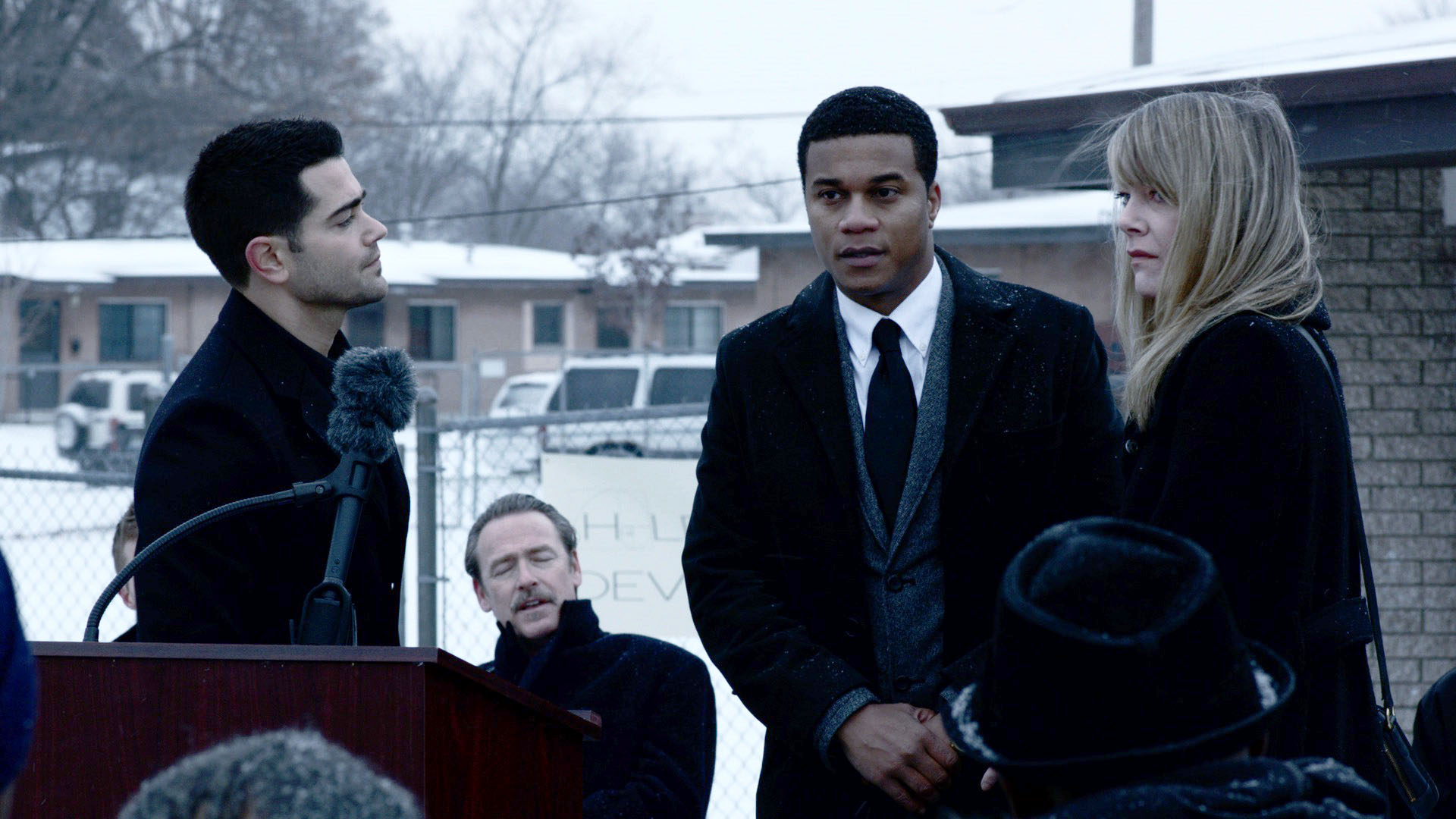Some ideas are just better suited to short subjects. As a firm believer in the idea that you can make a good movie out of just about any premise, given a proper tone and talent for execution, I also firmly believe that an idea doesn’t need to be stretched to accommodate a ninety minute time frame to achieve legitimacy. Some high concepts are novel in their own right, but once the point has been made and the audience gets it, dragging out a narrative to inevitability only serves to dull that point. This is the main problem with Destined, a film that on a technical level is well-built and has some new and interesting things to say, but the package for that delivery has been stretched so thin it’s hard to care.
Based on the notion that one small moment can change a person’s life dramatically, Destined focuses on two alternate realities for a man named Rasheed (Cory Hardrict). In one reality, he becomes a drug dealer who goes by Sheed in the hard streets of the Detroit projects; in the other, he manages through hard work to become an architect so that he may affect positive change to his community. The two realities never interact—this isn’t a science fiction film—so the novelty of the premise is less about contrasting Rasheed’s two existences than it is about comparing them, demonstrating how no matter which life he leads, Rasheed has to counter forces greater than himself that wish to compromise his identity, whether that identity be of a compassionate outsider or as a member of his impoverished community of origin.
Now, on paper, this is a very intriguing point and makes for an engaging thought experiment. Just how much of ourselves is invested in our past experiences and how much do those experiences actually shape us as opposed to how we shape them? The film presents Rasheed’s dual lives without flashy theatrics, color correcting Sheed’s scenes to a harsh orange hue while the corporate Rasheed’s world is bathed in unassuming blues. This makes the difference between the worlds obvious without being intrusive, and it casts the spotlight on the people that Rasheed will affect dramatically given his choices, exemplifying how his mother or the organizer at the community center might fare differently based on one young man’s life path.
But as interesting as that idea is, it doesn’t hold much weight as a complete narrative whole. Though technically both Sheed’s and Rasheed’s respective storylines are whole three act pieces on their own, the point of comparing the two is apparent relatively quickly. This exposes both Rasheeds as being relatively shallow characters, serving solely as the vessel for a broad social commentary rather than as a multi-dimensional character. I couldn’t tell you a single thing about Rasheed’s personality beside his desire for wanting what’s best for him and his, and that just isn’t a whole lot on which to hang a compelling character piece. And when you strip away the comparative aspect of Destined’s dual narratives, what you have are a couple of character pieces that sacrifice the dimensionality of their lead for a conceit made too obvious too quickly.
Again, this isn’t to say Destined is entirely without merit. Writer-director Qasim Basir has a firm grasp on narrative construction, and he pulls a pair of great performances out of Cory Hardict, as well as the rest of the supporting cast. However, when the purpose of a film is to make a point first and to tell a story second, you had better make sure that this point is complex and novel enough to carry a film for its entire runtime. Consequently, Destined feels like two halves that don’t quite make a compelling whole.
https://www.youtube.com/watch?v=r6fzjsU7nqY













